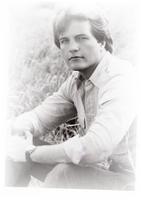God's Reality Program
Philosophers and scientists have struggled for centuries to define reality--what really exists, and why we perceive it the way we do. The questions that arise naturally from these discussions, such as "Why does anything exists at all? and What is our purpose in the scheme of things?", have often been dismissed as being too difficult to explain and understand. Christians, on the other hand, have known the answers to these questions from the beginning.
Secular arguments concerning this subject continue until today without agreement. The philosophers Immanuel Kant and David Hume, for example, disagreed in their conceptions of how reality is perceived and constructed within the human mind. Hume believed that our minds start out as "blank slates--tabula rosa" that are written upon by our experiences of the natural world, the data conveyed by our senses actually constructing within our brains concepts such as what it means to be alive. Kant, conversely, thought that we come into the world with what he called "a priori" knowledge, a pre-intellectual awareness or intuition that enables mankind to understand abstract concepts such as time and space, ideas that sometimes change with experience, a subjective rather than objective dynamic.
A similar conflict arose between the famous physicist Albert Einstein and a later field of study developed from his Theory of Relativity called Quantum Physics. Quantum scientists sought to explain away the experimental mysteries they encountered at the subatomic level by stating that "nothing exists until we observe it." Einstein rejected this completely subjective version of reality, responding that the laws of physics are irrefutable and exist outside our sphere of influence, that "God does not play dice with the universe." Hagel, another famous philosopher's wonderful idea, "The Absolute Mind," the source of everything, was preceded by a few thousand years in the pages of the Bible.
Christians have always known that it doesn't matter what our imaginations come up with to understand reality and our place in it; God has explained it all in His Holy Word. Scripture tells us that the Lord created everything with His spoken Word for His own honor and glory (Gen. 1; Job 38:39; Psalms 8) Everything is contained within Him, including ourselves, to honor and glorify Him with all that we think, say, and do (Duet. 5:5, Mat. 22:37, Luke 10:27, Mich. 6-9, I John 5:2-3), to love others the way He loves us, and to serve them (Lev. 19:18, Matt. 19:19, 22, 22: 39-40, Rom. 13:9, Gal. 5:13-14, Matt. 20:26-28).
No matter how we try to complicate it, God's version of reality is the simplest and easiest to understand. His purpose and our purposes have been clearly defined.
Secular arguments concerning this subject continue until today without agreement. The philosophers Immanuel Kant and David Hume, for example, disagreed in their conceptions of how reality is perceived and constructed within the human mind. Hume believed that our minds start out as "blank slates--tabula rosa" that are written upon by our experiences of the natural world, the data conveyed by our senses actually constructing within our brains concepts such as what it means to be alive. Kant, conversely, thought that we come into the world with what he called "a priori" knowledge, a pre-intellectual awareness or intuition that enables mankind to understand abstract concepts such as time and space, ideas that sometimes change with experience, a subjective rather than objective dynamic.
A similar conflict arose between the famous physicist Albert Einstein and a later field of study developed from his Theory of Relativity called Quantum Physics. Quantum scientists sought to explain away the experimental mysteries they encountered at the subatomic level by stating that "nothing exists until we observe it." Einstein rejected this completely subjective version of reality, responding that the laws of physics are irrefutable and exist outside our sphere of influence, that "God does not play dice with the universe." Hagel, another famous philosopher's wonderful idea, "The Absolute Mind," the source of everything, was preceded by a few thousand years in the pages of the Bible.
Christians have always known that it doesn't matter what our imaginations come up with to understand reality and our place in it; God has explained it all in His Holy Word. Scripture tells us that the Lord created everything with His spoken Word for His own honor and glory (Gen. 1; Job 38:39; Psalms 8) Everything is contained within Him, including ourselves, to honor and glorify Him with all that we think, say, and do (Duet. 5:5, Mat. 22:37, Luke 10:27, Mich. 6-9, I John 5:2-3), to love others the way He loves us, and to serve them (Lev. 19:18, Matt. 19:19, 22, 22: 39-40, Rom. 13:9, Gal. 5:13-14, Matt. 20:26-28).
No matter how we try to complicate it, God's version of reality is the simplest and easiest to understand. His purpose and our purposes have been clearly defined.

